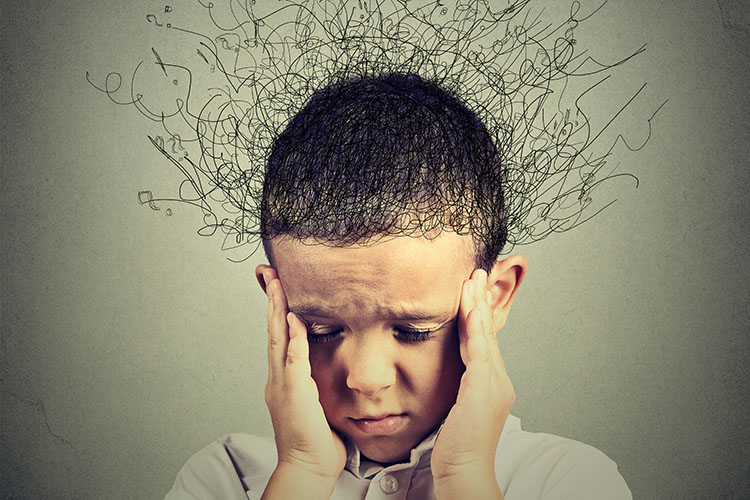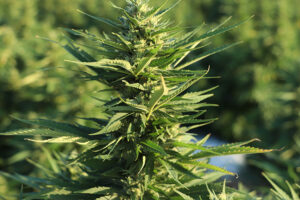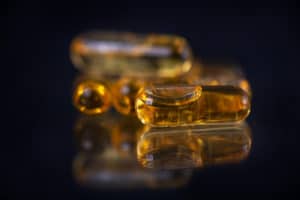After the legalization of medical marijuana in the United States, there has been a massive surge of CBD and THC-based products claiming to cure everything from Alzheimer’s to obesity and even cancer. While there is evidence to show that CBD can help with some neurological disorders, that doesn’t mean that it’s a cure-all for every ailment. If you’re considering using CBD oil for ADHD, here are some of the things you need to know.
What is ADHD?
Attention Deficit Hyperactivity Disorder, or ADHD, is a condition that affects over 6.1 million children in the United States. Boys are more than twice as likely to be diagnosed with the condition as girls. ADHD can continue into adulthood, where it severely impacts the quality of life for people living with the condition.
Childhood ADHD is typically characterized by inattention, hyperactivity, or impulsivity that can lead to problems at school and can even interfere with home life. The cause of ADHD is still unknown, though researchers speculate that it may be due to a combination of genetics, chemical imbalances, and even toxins that can impair a child’s normal development.
Typical treatment of ADHD includes a combination of medication and several therapies, including psychotherapy, special education, and social skills training. Therapy and medication can help people living with ADHD cope and manage their symptoms, allowing them to lead full and productive lives.
What is CBD and How Does it Work?
CBD is a cannabinoid extracted from cannabis plants. Cannabis contains a wide variety of compounds, including cannabinoids and terpenes that can affect human health and wellbeing.
See all CBD oil benefits here.
Cannabinoids, such as CBD and THC, interact directly with endocannabinoid receptors in our central and peripheral nervous systems, where they function similarly to the endocannabinoids that are naturally produced by the body. The endocannabinoid system is involved in several vital human processes, including the mediation of pain and the reduction of inflammation.
CBD has come under scrutiny in recent years due to its ability to moderate pain and reduce inflammation and nausea. Unlike THC, it doesn’t have any psychoactive properties and doesn’t cause the characteristic marijuana high. Pure CBD oil that has been refined correctly won’t contain any traces of THC, though some products on the market have a less stringent refining process that leaves behind small amounts of THC. While there is some evidence that cannabinoids work together synergistically, the presence of THC can make a product unsuitable for use in children.
Since CBD binds to receptors in the brain, there have been many claims that CBD can be used to treat a variety of neurological conditions, including ADHD. While it’s true that CBD can have a calming effect on neurotypical adults, the research into the efficacy of CBD oil for ADHD is limited. However, as interest in the compound grows, there are likely to be more studies published in the future that help bring clarity to this issue.
Current Research
While there haven’t been any formal studies on the effect of CBD on ADHD, there have been several studies that investigated cannabis and its effect on ADHD. Unfortunately, current findings are either inconclusive or fail to show any benefit for controlling or addressing the cause of ADHD.
One study looked at 30 adult participants with ADHD. It was a randomized, placebo-controlled study of a cannabinoid medication called Sativex, which contains a 1:1 ratio of THC to CBD. Participants were randomly divided into either a placebo group or a trial group. The researchers used a standardized QbTest to measure cognitive performance and activity level. They also looked at secondary outcomes such as typical ADHD and emotional liability symptoms.
The study didn’t show a statistically significant improvement in cognitive function or symptom reduction, though there was a nominally significant improvement in impulsivity and hyperactivity. Three participants experienced mild adverse effects and reported feeling light-headed. One participant experienced a serious adverse event and reported muscle seizures that stopped when they stopped taking the medication. One participant in the placebo group reported chest tightness and shortness of breath, though the cause of this remains unknown. The researchers also altered the Sativex dose after the trial started, due to the dose being too high (and respondents felt the titration level was too high). Finally, the researchers struggled with adherence to the schedule, with at least one participant stopping their treatment and then resuming it suddenly during the trial. These issues may have affected the outcome of the trial, which is why the authors report their findings as ‘inconclusive.’
A second study looked at previous participants of a multimodal treatment study of ADHD. The study looked at 87 young adults with ADHD and 41 young adults from the same background without ADHD. The study divided the groups further into cannabis-using or non-cannabis using. Participants responded to a Substance Use Questionnaire to determine their cannabis use status and were disqualified from the trial if they had a history of binge-drinking or hallucinogenic use.
Participants took several cognitive tests to measure their response inhibition, verbal learning and memory, decision-making, working memory, and processing speeds. Participants with ADHD consistently performed worse than their neurotypical peers, particularly in verbal memory, impulsivity, and working memory tests. However, researchers found no evidence that current or historical cannabis use negatively affected these tests.
One startling discovery is that in all tests, early-onset cannabis users performed worse than late-onset cannabis users for both ADHD and neurotypical groups. The researchers suggest that cannabis may affect the developing brain and cause persistent neurophysiological deficits in the prefrontal cortex, which is responsible for verbal fluency, planning, and impulse control. These findings suggest that while cannabis use may not have an impact on young adults with ADHD, it does have a significant impact on brain development in younger children.
Concerns About Using CBD Oil for ADHD
There are many stories about how CBD oil has helped children relax, focus, and combat the signs of ADHD. But many physicians warn of potential risks for using CBD in children. The main concern is that there have been very few studies on the dosing of CBD in children. Not only do the various forms of CBD ingestion have different rates of delivery to the brain, but various products will also have a varying amount of CBD in them. These factors make consistent dosing almost impossible without trial and error, which can be harmful to children.
Since there are no CBD-based medications for ADHD that have been approved by the FDA, manufacturers of CBD products aren’t under stringent supervision. Many states don’t even require lab testing to determine the CBD and TCH levels in the products being sold. If products aren’t consistently tested, you may find the CBD concentrations will vary from batch to batch, even for the same product. The products may also contain harmful contaminants like THC, which would render the product unsafe for consumption by children.
CBD may have an impact on childhood development alongside THC. It is a cannabinoid, which means that it binds to receptors on the brain. These receptors are vital for proper brain development in young children, and CBD may interfere with this development. Since it’s unethical to do experimental studies on children to get a clear answer about the role of CBD in brain development, we have to rely on retrospective studies instead. At least one study has shown that early-age use of cannabis has a detrimental impact on prefrontal cortex development in children, though it’s uncertain whether this is due to CBD, THC, or some other mechanism.
Finally, CBD can interfere with enzymes that are vital to drug metabolism, which can interfere with the action of certain drugs such as cholesterol medications, mood medications, and even blood pressure medications. If your child is on any medications, we strongly advise that you speak to your physician before starting CBD treatment.
Conclusion
While there is a lot of evidence to support the effect of CBD on pain management and certain forms of epilepsy, evidence of it being useful for ADHD is much more scarce. There have been very few studies done looking at either cannabis or CBD alone in the treatment of ADHD, and the results of these studies have been disappointingly inconclusive. As the federal and state regulations regarding the use of CBD continue to slacken, more and more research into the therapeutic properties of CBD will get underway. More studies means more evidence to answer these questions once and for all.
Each child is different, and each situation is different. While CBD is generally well-tolerated in both adults and children, it’s difficult to say what the long-term effects are. Make sure that you speak to your pediatrician if you want to start your child on CBD oil for ADHD. He or she will be able to provide you with all the information you need to ensure that you’re giving your child a safe dose that hopefully reduces their ADHD symptoms.
FAQs About CBD for ADHD
Question: Can CBD oil help ADHD patients?
Answer: While it’s not yet clinically proven, there have been many claims that CBD can be used to treat a variety of neurological conditions, including ADHD.
Question: What is ADHD?
Answer: Attention Deficit Hyperactivity Disorder, or ADHD, is a condition that affects over 6.1 million children in the United States. Boys are more than twice as likely to be diagnosed with the condition rather than girls.
Question: Is there any research on the effects of CBD oil in ADHD patients?
Answer: While there haven’t been any formal studies on the effect of CBD on ADHD, there have been several studies that investigated cannabis and its effect on ADHD. Unfortunately, current findings are either inconclusive or fail to show any benefit for controlling or addressing the cause of ADHD.
Question: Is it advisable to let ADHD patients take CBD oil?
Answer: There are many stories about how CBD oil has helped children relax, focus, and combat the signs of ADHD. But many physicians warn of potential risks for using CBD in children. The main concern is that there have been very few studies on the dosing of CBD in children.
Question: Will children get long term side effects in taking CBD oil?
Answer: Each child is different, and each situation is different. While CBD is generally well-tolerated in both adults and children, it’s difficult to say what the long-term effects are.






